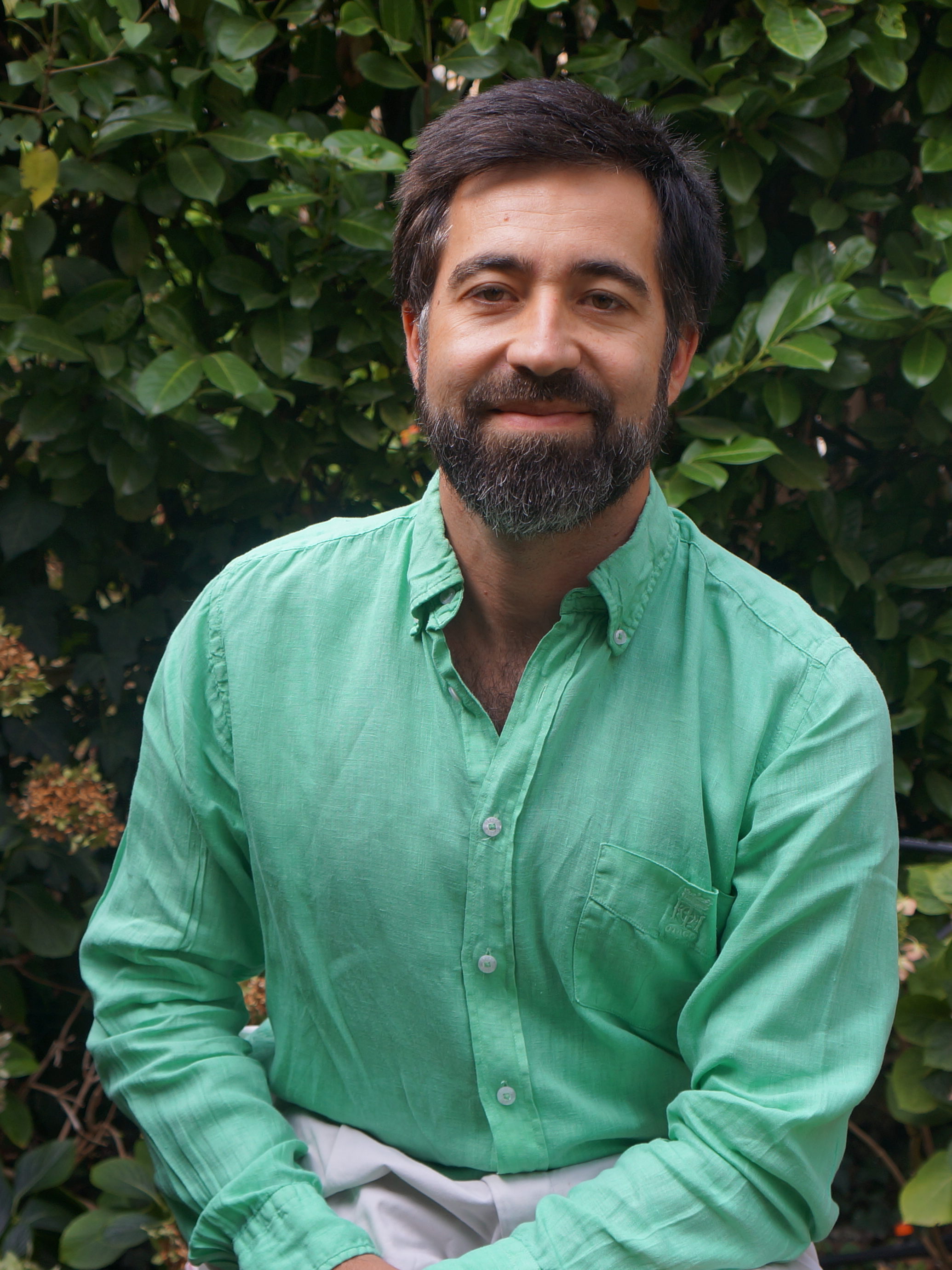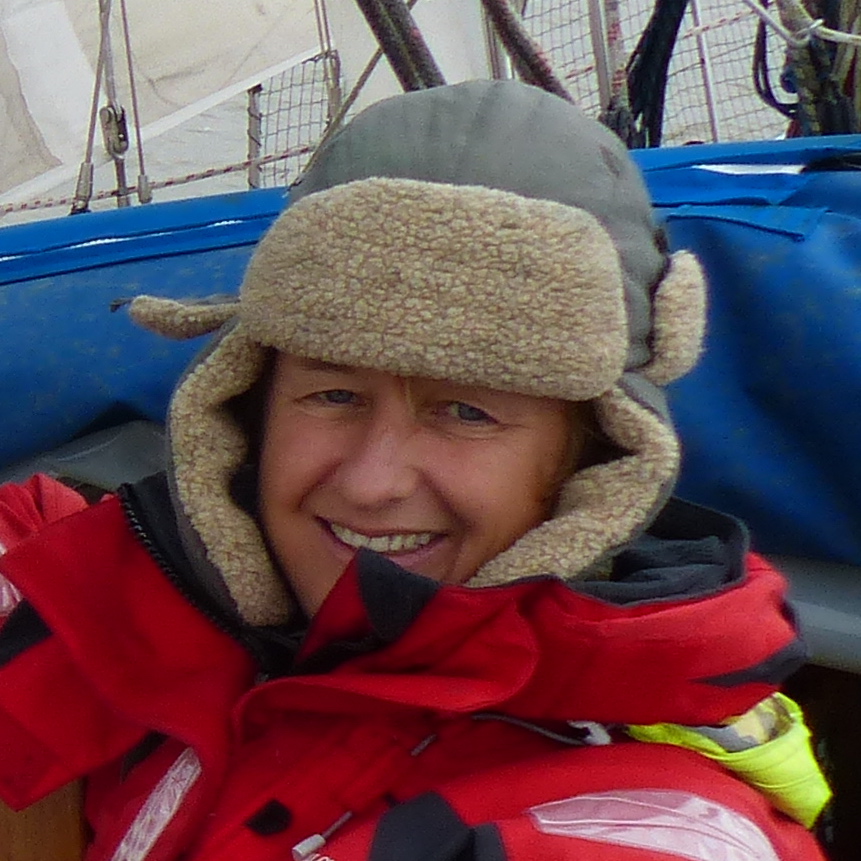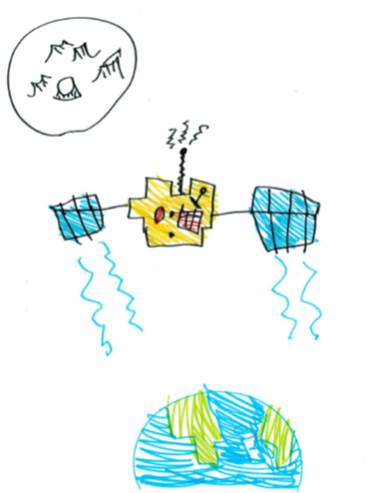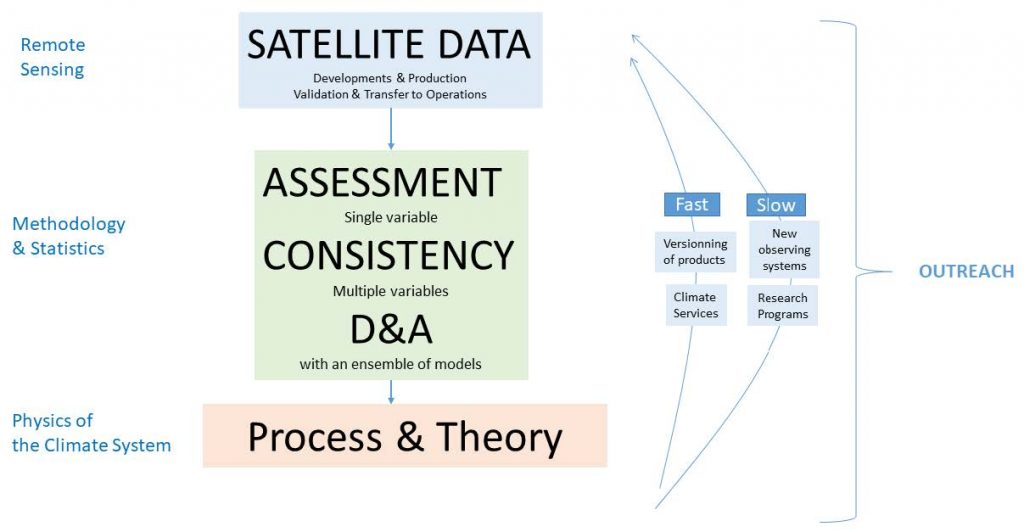Publisher: Direction – Updated on 22/03/2021
Scientific objectives
The team’s scientific questions are:
- What are the variations in the global water and energy cycle in response to current climate change?
- What are the causes of these variations? Can we determine the role of anthropogenic activities in these variations?
- Can these analyses provide constraints on future variations in the global water and energy cycle?
The approach taken to explore these questions relies heavily on space observation as a relevant source of observation to characterise the global water and energy cycle.
Strategy and tools
The team’s approach consists of developing satellite products and characterising their uncertainties (earth energy imbalance, sea level, ocean mass, liquid and glacial continental water stocks, global precipitation, sea ice, tropical storms), evaluate them and implement statistical methods (such as optimised closure of balances and detection/attribution approaches) to analyse the variability of the water and energy cycle and its causes on the one hand, and to analyse the physical processes at work or test the current theories at play on the other (such as the scaling of tropical precipitation extremes, the relationship between the position of the ITCZ and the inter-hemispheric energy imbalance). This approach allows us to feed our reflections on the scientific issues and at the same time to feedback, rapidly, on the algorithms and products as well as on the maturity of the climate services that can be derived from them.
Projects
For the period 2021-2025, the focus will be on studying global water and energy balances, estimating the global energy imbalance, estimating land water stocks, ocean mass, making long series of sea ice observations, monitoring global precipitation, studying organised convection and precipitation extremes in the tropics. We will also analyse the outputs of the CMIP6 climate models in the context of the attribution detection approaches that we will develop during the statistical analyses of our observation sets.
News
Composition
Permanent staff
| First name LAST NAME | Grade – Employer |
| Remy ROCA | Team leader Senior Scientist – CNRS |
| Alejandro BLAZQUEZ | Staff member – CNES |
| Anny CAZENAVE | Emeritus Officer – CNES |
| Thomas FIOLLEAU | Research Engineer – CNRS |
| Sara FLEURY | Research Engineer – CNRS |
| Benoît MEYSSIGNAC | Staff member – CNES |
All team members

Blazquez Alejandro
Agent CNES , Chercheur CNES
Fiolleau Thomas
Research Engineer @CNRS

Fleury Sara
Research Engineer CNRS

Guillaume-Castel Robin
PhD Student , Université Paul Sabatier (UT3)

Megain Tom
Research Engineer / Ingénieur de Recherche (CDD)

Meyssignac Benoit

Roca Rémy


